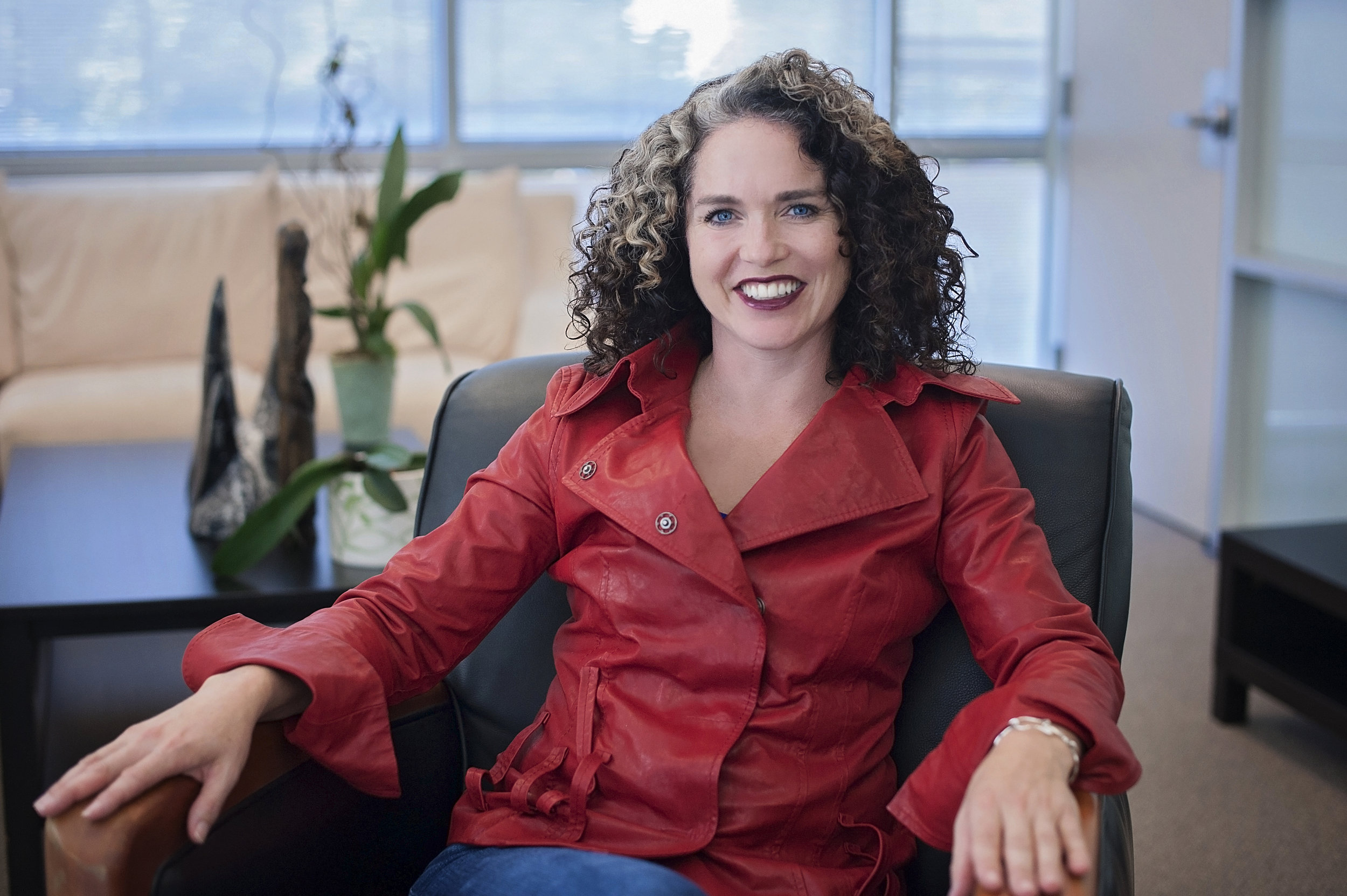When a startup proposes to create a whole new marketplace where none existed before, watch out.
Duco founders Sidney Olinyk and Alicia Sloan are unorthodox women who have a lot in common: they both studied foreign policy. They both worked in Washington in pretty impactful positions within male-dominated fields (defense and intelligence, respectively). They both attended graduate school in Europe. And they were both involved with the Truman National Security Project, an organization that connects and trains national security leaders (Sidney was running the fellowship program and Alicia was a fellow.)
But their friendship really blossomed when they realized they shared a preoccupation with entrepreneurship.
Starting when they were working together in the Pentagon, once a week, the two would go out to dinner together and talk about their business ideas and their shared entrepreneurial itch.
There’s supply. There’s demand. But where’s the storefront?
“We’d talk about things from the Middle East to the Obama administration,” Alicia explained earlier this month, “But we kept coming back to this idea that the way that information is passed along in Washington is inefficient—either un-monetized altogether, or too monetized, too expensive.”
Every day, Washington offices get calls from people around the world searching for experts on complicated topics relating to their international equities and exposure.
“And we just had this vision,” Sidney explained, “to democratize and expedite access to these people [the experts].”
They imagined a company would work much like Uber or Lyft, in that it would bypass the old, inefficient or expensive ways of getting expert advice. And best of all? It would leverage their own vast networks of contacts among some of Washington’s best minds.
Fast forward a year. Alicia and Sidney are now living in Silicon Valley, (Sidney with her boyfriend and Alicia with her husband and two children and Australian shepherd), where they’ve relocated to attend a several-month-long startup accelerator program. We talked them via Skype earlier this week and came away even more excited about their startup, which they’ve already raised two angel rounds of funding for: Duco, an on-demand global expert marketplace.
Our conversation
We’ve checked out your beta website and it’s impressive. Seeing all those experts and their hourly rates and their exceptional résumés!
Alicia: To be honest, there’s nothing else quite like this. You have expert networks, but they tend to be much more opaque. And you have geopolitical consulting firms, but nothing that quite matches this on-demand model, where you can actually see what your costs would be to engage this person. We are radically transparent and fast. And these types of individuals have never been this accessible before. I mean, having the former Chief of Staff to the Secretary of Commerce, (REDACTED)—these people who have normally only been accessible through high-cost retainers or political connections.
What if you have just a kook or a crank with $700 in her pocket, enough to pay for an hour-long call—someone who would ask them silly questions or quote them in a publication they wouldn’t want to be quoted in?
Alicia: Well, first off, when a call is requested, the expert has the full right to decline to take the call, either because they don’t think they’re the right person, or the client isn’t providing enough information, or there is some conflict. We also, on our end, have a robust client [vetting] process. We haven’t run into that issue (of inappropriate clients), but it’s something we expect on the horizon. We also advise our experts to think about how, if you are speaking at a conference, at any moment anyone could walk in and anything you say could end up in the Washington Post. So, we advise them to [keep that in mind].
The transparency is clicking through the experts on your site, I did notice that many of the women seemed to be among the lower-cost experts. Is that a trend?
Sidney: We noticed early on that that was happening and we alerted women that they were generally pricing themselves lower. Some have raised their prices.
How much guidance do you give experts on their rates? What if someone wanted to charge $1,200 an hour, but other people with his background were charging $700 an hour.
Alicia: You pick your price. We want people to be bought into the idea. If you pick your price, you feel like you have autonomy. We wanted it to run like a market. So, if you’re really busy, you can log in and set your price high. I will say that price doesn’t necessarily equal quality. Sometimes it does track with seniority, but not always. The reality is that you’re probably going to get fewer calls if you’re priced that high.
We’re going through different pricing models right now. We have another mechanism where a client comes to us and says, Hey I want a five-page paper on X and we’ll give you X dollars and then we can go to the expert and say, Do you want to write it. If the client really wants a specific expert, they’ll have to pay that price, but if a client has a budget, they can see who is available at that price.
Sidney: And one thing I just want to explain is that everything is automated. We never share personal information. You know Twilio? When you call your Uber driver, that’s not really his or her phone number. When you get a text or call as an expert, we’re using that same technology to mask phone numbers.
If you schedule a call with an expert, they’ll get a text and an email, you guys agree on a time, we issue you a conference call number. And then you pick up the phone, call in, hang up, and you get a receipt in your inbox where you get to rate the expert. So that’s built today. That’s our first version of a service that’s completely automated. And we’re in the process of adding in other automated services soon. We actually have a place where you can request products soon, but we’re going to put that more front and center because more clients than we thought want paper.
We’re going to add chat soon. Maybe you’re the expert and you want to follow up, queue up articles for the client to read.
In searching, I noticed you have no experts on copyright or art fraud, for instance. Can you talk about how you decided on what kinds of experts to offer?
Sidney: We wanted to do what we know well. We want to nail it. Alicia is (REDACTED) and I am former DOD and we worked in Washington in national security. Our experts today are geopolitical and international business experts. This encompasses policy and regulatory issues. And so, for example, we don’t work on pharmaceutical products. We’re very much where our current network is. We also have a very strict vetting process for experts. We can learn other industries and other sectors, and there may be a world where we add other verticals, but we wanted to do one thing well first before we started expanding.
We want people to think of us if there’s a bill going through Congress or they’re moving to India and want to find out about the security environment, so it’s that sort of thing. But if you want to sell purses in a market in Iowa, that’s unrelated to what we can offer today.
We are talking to clients now about what other types of things they’d like to see, but I’d say we are a few years out.
What is your degree of separation is there between you and your experts? Do you know them all personally?
Alicia: When we started, the first 100 to 150 were all our former colleagues and friends, bosses, and bosses’ bosses. And now we have an application process as well. A lot of it is word of mouth. There are a lot of different ways now that we are scouting.
Who are your clients?
Alicia: We’ve been gaining traction in oil and gas, financial services and institutions, that includes a tier one institution, as well as hedge funds, fast growing tech companies and think tanks — pretty diverse. Each of them comes with their own set of interests. No two requests have been identical so far.
One side effect of creating a marketplace where there wasn’t one before (I’m thinking Etsy) is that it encourages growth in that sector (more professional jewelers or printmakers, etc.). Will Duco lead to an increase in professional security experts?
Sidney: I believe it will. The decentralization of talent will allow more individuals to get in the game. The gig economy is on the rise; people of all professions are enjoying the flexibility of working where they want, when they want, so as more companies like Dūcō offer these options, I think we’ll see more professionals participating.
So what are you working on now, out in Palo Alto?
Alicia: We’re currently building a software as a service (SAAS) product and we’re really excited to unveil it in a few months. It is a dashboard where companies can open up a global workforce, that gives them access to all of our experts, based on a monthly fee.
It will have a lot more features available. On the expert side, it’s a consultancy in a box: say you leave the White House or the Pentagon and you sign up for Duco where you can open it up and do your invoicing, your projects, all your transactional history with one client is in one place—your institutional memory with the oil and gas company is in one place, your institutional memory with the financial services company is all in one place—all with functionality.
What do you mean by institutional memory?
Alicia: Let me walk you through an example. For one of our clients who is recurring, they’ve asked for assessments on a bunch of different topics. But when you log in, it’s really important, I think, for them to be able to see everything they’ve ever purchased through your platform. Kind of like a channel. So when somebody else in their company comes on with the exact same question, they can see that their company already has commissioned this report on Pakistan and security in certain regions. So they don’t have to reinvent the wheel every time. We want it to be so that the institutional history between the client and the company stays there, to build a better long term relationship.
I can imagine a world where an expert would be willing to pay you more to allow them on the site as an expert, because of the good it could do to their career, even if they don’t necessarily make a lot through the hourly gigs. Do you wrestle with that question—who is benefitting whom here, and how much? Will you always make money via that 33% cut?
Sidney: That’s absolutely right. We push out experts’ work through social media, we get them on the news, we get them publishing opportunities. And also, we’re moving toward a way where they can start promoting themselves more. Every expert’s profile has a unique hyperlink. They can link that to their online biographies. If they’re at a conference, they can say, ‘You know what, I actually do my scheduling through Duco.’ We’re empowering them.
We’re pushing for a cultural shift in the way that you can follow up with someone, when you otherwise aren’t getting paid for something. Because that happens a lot in our industry, where you’re giving away free information. This allows them a way, without making it awkward by sending an invoice after a phone call, where they can get paid for their advice. The feedback we’ve gotten from experts on this idea is overwhelmingly positive.
What has surprised you most so far, about how this is working and who wants your service.
Alicia: How much people still want written product, which falls within a lot of our experts’ bread and butter. They are used to writing. It’s interesting. The Financial clients are much more used to paying for phone calls. The other clients tend to be a little more traditional in wanting papers.
Sidney: I was really surprised that bigger clients—enterprise clients—are more interested in us than we thought [they would be] at this stage. Big companies really are dipping in and wanting to tap these guys for their knowledge. We’re brand new. We’re months old. We work very, very closely with all of our experts and all of our clients–at this stage. Everything that’s happening we’re tracking to collect information and make sure the user experience is as seamless as possible.
A lot of what we do is just customer service. There are other ways we capture feedback. After every single phone call, we ask for your feedback on the quality of the experience and the quality of the conversation. We know that’s really important, because we’re tackling a new concept, so it’s important that we get it right.
That’s interesting—a lot of individuals are probably not used to paying $500 to talk to someone for an hour, but businesses are not used to paying less than $5,000 to get expert advice. There’s no way you could charge businesses more than you charge individuals, is there?
Sidney: We might have a model in the long run where people can do things pro bono. But you’re absolutely right, no matter how we cut it, we are coming in under any of our competitors. We could decide to charge a lot more, but we don’t want to do that.
What observations do you have about what holds back some women (and men)? Either internally or externally.
I think finances hold a lot of young people back. It’s difficult to be able to work for free in internships or make a small amount of money stretch over 6 months abroad. I had to do it at times but it was challenging. I ate a lot of baked potatoes for dinner. Not too dissimilar to working for a startup, where being able to live lean is key.
How did you get so confident?
Alicia: For me, it was travel but doing it boldly and for extended periods; living, studying, and working overseas in places that challenge you to adapt and be resourceful. I remember reading through local classifieds in Mexico City trying to find an affordable sublet for a year and selling my furniture online to finance my move to Damascus, Syria. I strongly believe that putting yourself in unfamiliar environments over time provides ample opportunities for self-reliance, self-discovery, and ultimately, greater confidence.
Can you share with readers any insight you have into your success?
Sidney: Make bold moves while you are young.
Check out Duco (which means “I lead” in Latin) on Twitter here , on Facebook here, or at ducoexperts.com.











